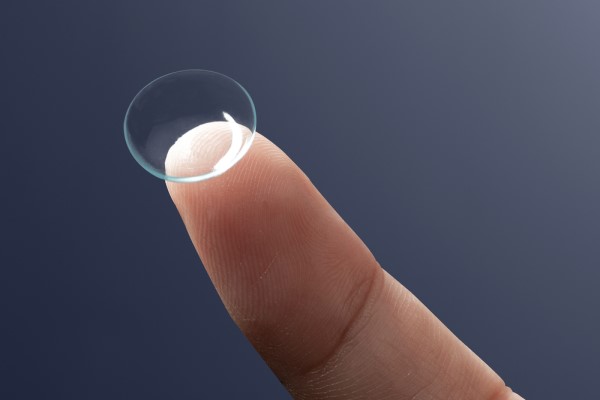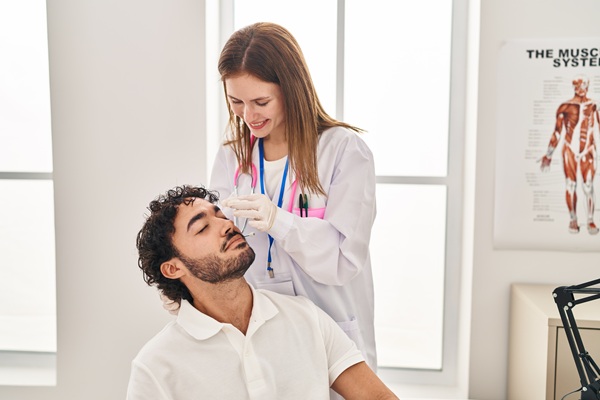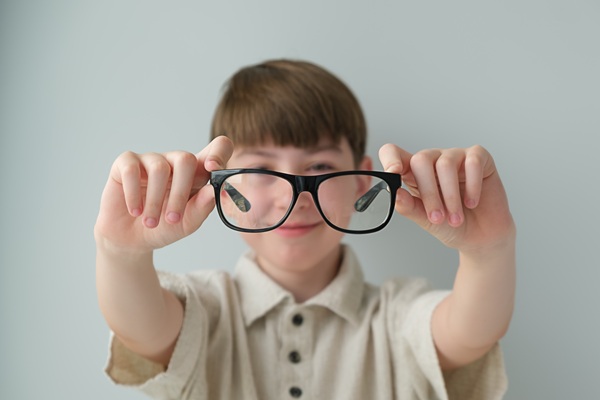Prescription Contacts or Prescription Glasses?

If your vision needs correction, prescription contacts or glasses are considered to be your primary options. However, many new contact wearers-to-be have no idea how different modern contacts are from their predecessors. Rigid contacts were once the only choices, and these took a while to get used to. Some people could never adjust and eventually went back to wearing glasses.
Nowadays, soft contact lenses can address most vision issues and can even be worn for extended periods. That is a massive difference from the early days of contacts, when wearers had to take them out and clean them nightly. Now, some contacts can safely stay in your eyes for more than a month.
Glasses still play an important role in helping improve the vision of countless people all over the world, of course, and they are the more functional and fashionable option. But prescription contacts are more convenient and can be just as affordable as glasses.
Improving your vision with prescription contacts or glasses
To improve people's understanding of the similarities and differences between prescription contacts and glasses, let us take a closer look at these two vision-correcting aids.
1. Glasses
One of the most obvious benefits of wearing glasses is never having to touch the eyes. Regardless of how clean one's hands are, touching the eyes increases the risk of developing an eye infection. Other advantages that glasses have over contact lenses include the following.
Wearing glasses is cheaper than wearing contacts in the long term because they do not have to be replaced as often. Contact wearers typically need to replace their lenses every month to minimize the risk of infection. Also, cleaning glasses is less complicated than cleaning contact lenses.
Glasses also regulate how much light gets into the eye, enabling optimal vision and comfort. For example, patients can get photochromic lenses, which are clear indoors but darken when exposed to sunlight. This protects against ultraviolet rays while preventing excessive light from getting into the eyes. Various colors are also available.
Glasses can serve as a fashion accessory or part of a personal brand. A nice set of glasses can help make a good first impression. Glasses also provide a bit of protection against environmental factors, like dust, wind, and debris.
The main drawback associated with glasses is that they can get in the way of regular life. For example, people may have to repeatedly pick up their glasses off the ground when playing basketball, or their lenses might fog up while enjoying a hot drink or emptying out the dishwasher. Other disadvantages that glasses have include:
- Vision can be affected by the buildup of dirt and other debris when wearing glasses
- Glasses sit about half an inch away from the eyes, limiting peripheral vision
- Glasses exert constant pressure on the wearer’s nose and ears, which can lead to headaches
2. Contact lenses
Contact lenses have evolved in the past few decades. They were designed to provide a more convenient way to correct vision. Unlike glasses, contacts will not fall off the face. They are placed directly on the eye and held in place by suction. Advantages that come with contacts include the following.
They are significantly more convenient than wearing glasses. People are free to run, jump, and dance as much as they want to without worrying about their contacts falling out. Most professional athletes who need their vision corrected opt for contact lenses.
Contacts can be used to personalize one's appearance. For example, someone can change their eye color or make their eyes look like a cat’s eyes.
Contacts curve with the eyes, providing a wider range of vision and fewer distortions. Some types of contacts can even be used to reshape your cornea.
Contacts are not as vulnerable to weather conditions as glasses. For example, they do not fog up in cold weather. That said, contacts do have a few downsides:
- Contacts hinder the flow of oxygen into the eyes, making the wearer more prone to issues like dry eyes or computer vision syndrome
- Learning how to place and remove contacts can be challenging for some people
- Contacts can irritate the eyes when worn overnight, though extended wear contacts are available
We can improve your vision
Our optometrist can help you figure out if glasses or contacts are right for you. Give us a call or stop by our Dallas clinic to set up an appointment.
Request an appointment here: https://www.texasoptical.net or call Texas Optical at (214) 771-7333 for an appointment in our Dallas office.
Check out what others are saying about our services on Yelp: Read our Yelp reviews.
Recent Posts
Dry eye treatment is important when occasional irritation becomes ongoing discomfort that interferes with daily activities. Many individuals experience dryness, burning, or a gritty feeling in the eyes from time to time. However, when symptoms start to affect reading, screen use, or time outdoors, a structured approach to diagnosis and care helps protect comfort and…
Myopia control focuses on slowing the progression of nearsightedness, primarily in children and teens, to help protect long-term eye health and day-to-day vision. Myopia occurs when the eye grows too long or the cornea curves too steeply, which causes distant objects to appear blurry. As the prescription increases, the risk of future eye disease also…
Retinal photography gives optometrists a detailed view of the back of the eye. When done regularly, they are often able to spot early signs of disease before symptoms affect daily vision. This advanced imaging tool helps create a clear record of eye health over time and supports smarter decisions about treatment and follow-up care. Learning…
Red, itchy eyes can affect your everyday comfort and reduce overall well-being. It is important to seek effective vision care from the first sign of irritation. Proper attention to symptoms, underlying causes, and healthy habits ensures stronger long-term eye health and greater day-to-day clarity. Redness and itchiness often stem from several common triggers. These include: Allergic…


